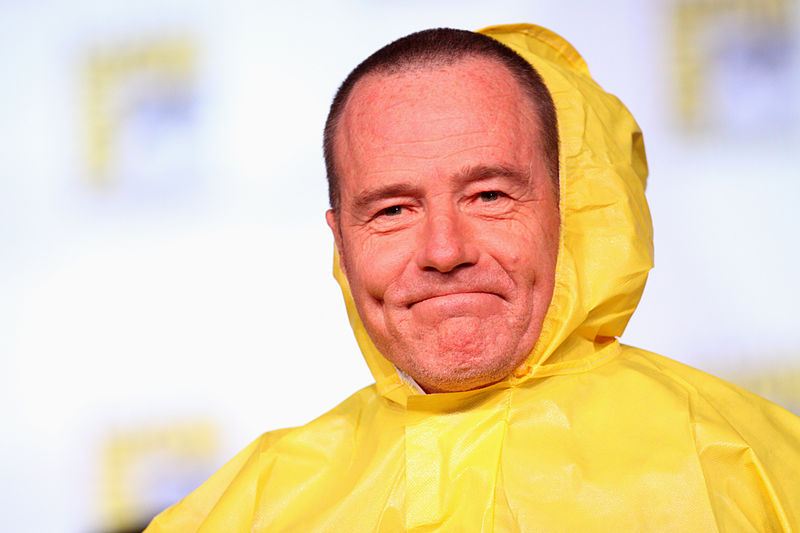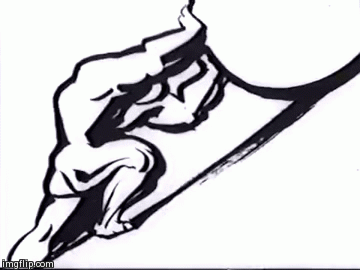'Breaking Bad' Finale: Why We Root For Walter White

He freed Jesse, secured funding for his children’s future, killed the Nazis and Lydia and died on his own terms. As the viewers, we share Walt’s happiness – not because he died, but because he won.
Throughout the series, Walt is referred to as the anti-hero, a man who has transformed from Mr. Chips to Scarface. So why do we continue to root for this barbarian if he's no longer the cute, vulnerable man we once loved? Why can we look past the death and drug addiction and broken homes he's caused? Maybe because we all have a little Walter White in us.
Walter White Is Sisyphus And So Are We
We meet Walt in the desert in his underwear. It's intentionally disarming and intended to earn our empathy. As the series continues we learn Walt's family views him as a bit of a dork, his wife pesters him about which credit card to use for specific purchases, his son suffers from cerebral palsy and his scientific genius was rerouted from co-founder of a billion dollar company and to a high school chemistry job in New Mexico where students don't listen to a word he says. Walt's life is pathetic, but it's also ordinary. And so is ours.
Walt is the promising artist who gives up painting to work as a realtor. He's the engineer who loved food and wanted to innovate cooking technology in restaurants, but couldn't resist the six-figure salary from Boeing. He's the writer who wrote half his novel in college before he transferred to the business school, moved to New York to work for an accounting firm, bought a house in the Connecticut suburbs, had three kids, sort of got to know them during the twenty minutes he saw them after work, and died with his half-written novel stored on a forgotten hard drive.
READ MORE: Which Breaking Bad Finale Predictions Came True?

Walt always hid behind the excuse that setting his family up for the future fueled his drug-cooking fun. But in his final conversation with Skyler, Walt accepts death, and finally tells the truth. "I did it for me. I liked it," he says. "I was good at it. And, I was really… I was alive."
READ MORE: Breaking Bad Finale Fan Reactions
Only through the threat of cancer can Walt escape the mundane and leave the boulder at the foot of the hill. As he struggles to build a new identity, we watch not in horror but in awe, and as he transforms from Walter White - the overweight, boring, forgettable chemistry teacher - to Heisenberg - the ruthless, cunning mastermind - we smile in appreciation of life.
After the series finale, Jonathan Banks, who plays Mike Ehrmantraut, explained that characters empathize with Mike because "Mike lost his soul - Mike knows he lost his soul - and I think there's a part of all of us if you've lived long enough that you have lost a piece of yourself, and at the same time Mike is in control, he gets it done, and Mike is not afraid - so I think there's a part of us that, all of us, that would like to be like Mike, including me, there is some Mike I'd like to be.”
No one relates to perfect characters because we’ve all done wrong. Mike died many episodes ago, but it’s difficult to watch “Felina” without recognizing his influence on Walt. As Walt dissolves the web of lies that has defined his character, he assumes Mike’s calm, knowing demeanor.
READ MORE: Aaron Paul: 'Breaking Bad's' Secret Weapon
It’s fitting that Walt and Mike die from essentially the same wound – a Heisenberg inflicted gunshot to the side. Mike spends his last moments sitting along a riverbank enjoying nature, while Walt spends his in a meth lab, but both die with silent pride at the end of strangely fulfilling journeys.
We see them as murders and drug smugglers, but we don’t want to see them as bad people. They want to live, just like anyone else. Would most of us choose meth and murder as the media of our expression? Probably not. But Walt does. And Walt is good at it, and Walt had fun and Walt lived. That's more than most of us can say.
READ MORE: Neon Tommy's Breaking Bad coverage
Reach Staff Writer David Tobia here or follow him on Twitter.



